Inna Ilienko arrived in Australia on March 14 with her eight-year-old son, Andrii. The rest of her family, including her husband and his elderly parents, remain in Ukraine
“I didn’t sleep on the flights. Andrii did. He was so tired, because we’d slept outdoors in the cold for three nights on the Slovakian border, surrounded by lots of other women and children trying to leave Ukraine. I was very afraid. Then we travelled by car and then train through Poland to Austria, where we were able to get flights to Sydney. I’m glad Andrii slept, but I couldn’t. I cried all the way.
We’d said goodbye to my husband – who’s also called Andrii – on February 27. That was a very hard moment for us. He made the decision to stay in Ukraine as his parents are very old and need help. We also said goodbye to my daughter, Diana, who’s 20. Her boyfriend is at university in Austria, so she’s gone to stay with him there.
I’ve always loved the idea of Australia, but I thought I would come one day for a holiday, with money and the opportunity to go shopping, visit museums. I never thought I’d come here as a refugee, but when the war started, my friend Anastasia, who has lived in Sydney for 20 years, suggested this would be a safe place. She set up a crowdfund to help us buy the tickets. We wouldn’t have been able to afford it otherwise. She’s been helpful right from the start.
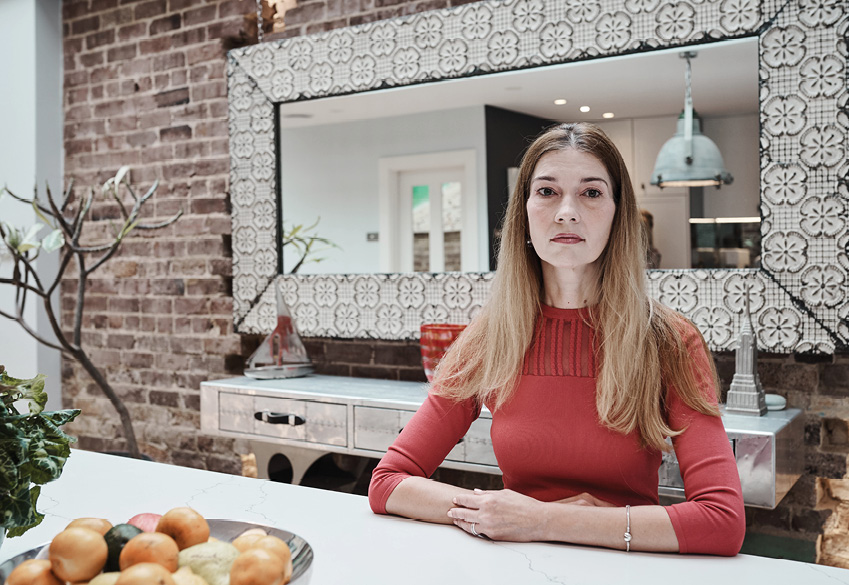
Anastasia met us at the airport, and we stayed with her for a week. That was the first time I felt able to sleep peacefully for a long time. Then we found out her landlord was against it so we had to leave. I spoke to the Ukrainian Council in New South Wales about accommodation, and they put us in touch with Mandy and Tim, who had volunteered to be hosts.
They have a studio apartment in their garden, with its own bathroom and kitchen, and we feel very comfortable there. It’s our own space, but Mandy often invites us to have breakfast or dinner with them. She’s so kind. We’re grateful for everything they do for us.
It’s important that I can earn money, especially as my husband has no work now, and we have no savings. But I arrived on a tourist visa, so I don’t have the right to work. I’ve been offered a job as a bookkeeper – I did that as part of my career in Kyiv; I was a personal assistant at a mining company – but I can’t start until I get a work visa. I’m trying, but it’s not easy. I just have to wait and hope.
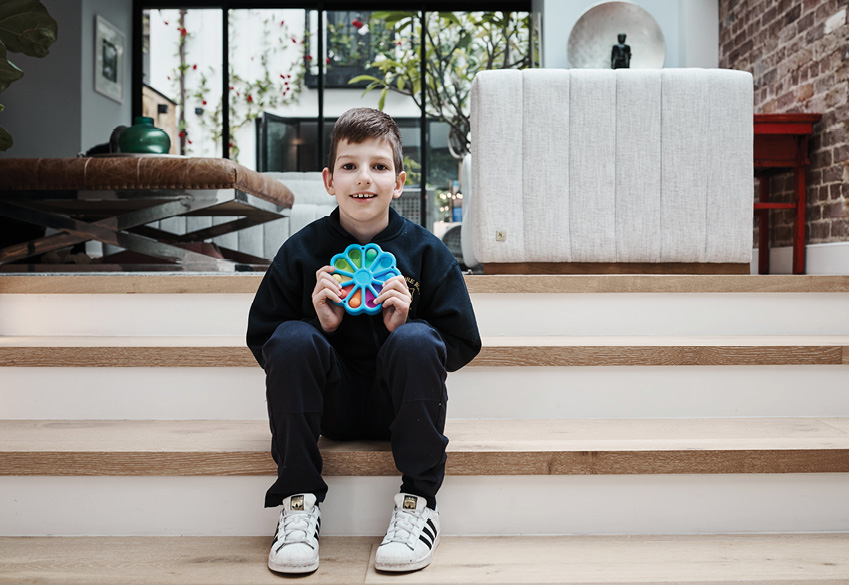
Andrii started at a public primary school last week, and he’s very happy there. The Ukrainian Council helped us to enrol, and helped with the uniform. Andrii’s classmates are very kind and welcoming. I went to watch their Easter Parade at the school today, and it was lovely to see him smiling with his new friends. He knows some English from school in Ukraine, and I’m sure he’ll progress quickly now he’s here.
Each day, I take him to school on the bus, then come home and study English. Later, I pick him up and we have dinner – chicken stew, or soup with dumplings – and then do a video call with his dad. Andrii loves Lego, and he likes to show him what he’s built.
We also speak to my daughter and, if possible, to my parents and sister. They live in Donetsk, where the situation is even worse, with bombing every day. They only have water for two hours a day, and often no electricity, so we can’t communicate. It was my dad’s 81st birthday two weeks ago, and I couldn’t speak to him. They’re too old to leave, and I don’t know if I’ll ever get to hug them again, which is probably the thing that makes me most sad.
We don’t watch the news, because we hear it first-hand from my husband, who’s staying with friends in the west of Ukraine. He left our home in Kyiv as it’s too dangerous. Our whole neighbourhood has been bombed, and we have no idea if our apartment is still there. Things are much worse than they show on TV. A friend of mine has been living for a month in a bomb shelter with her 12-year-old daughter. We don’t hide any of it from our son. He knows the situation. When the war started, my children grew up very quickly.
We were a very happy family. We always spent a lot of time together. I miss those happy times, enjoying family dinners at home. I know my husband loves us very much, and wants to be with us, but I think only about the safety of my children. The weather has been bad since we arrived in Sydney, but rain is nothing to me. It’s beautiful here, because it’s safe. We can breathe.”
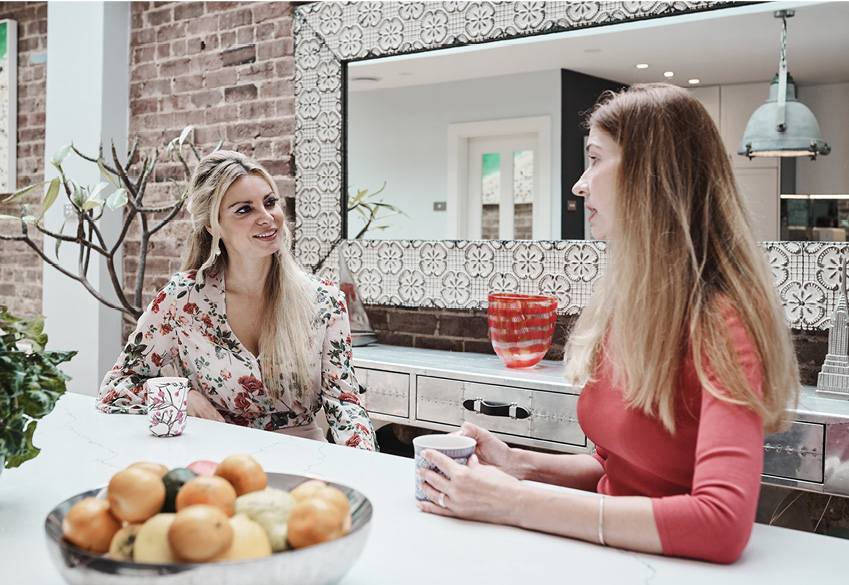
At the end of February, Mandy Drury volunteered to host Ukrainian refugees in the home she shares with husband Tim, their 16-year-old son Dash and toy poodle, Miso. Three weeks later, they welcomed Inna and Andrii to their terrace in Sydney’s eastern suburbs.
“I grew up with my parents often taking in various people from around the world, or even just friends who were going through a divorce, so I’ve always had an open-door policy if someone is in need. When the war broke out in Ukraine, my husband and I started discussing it, as our eldest son, Baxter, recently went off to college, so we had a studio out the back sitting empty.
I hadn’t heard of anyone hosting refugees in Australia as it was still early days, but I knew it was happening in other countries, so I did some googling and found the Ukrainian Council of New South Wales. I told them we had space, and two weeks later they called to ask if we could host a mother and son. I said, ‘No problem.’ They asked if we could commit to two months initially, but we’re happy for them to stay longer.
Inna and Andrii were both very quiet at first, which is understandable. They’d only been in Australia for one week, and they were completely distraught, worried about Inna’s husband, her parents and her sister back home. They arrived with one suitcase, and it happened to be the same night we were having friends over for dinner. Inna and Andrii sat at the table looking shattered and shell-shocked, and I felt so guilty that we were there laughing and talking, and sharing a glass of wine and plentiful food.
I’ve always had an open-door policy if someone is in need
Right away, our friendship group and the Potts Point community went into action. The next day there were bags on our doorstep of gum boots for Andrii and clothes for Inna. People we hadn’t ever met have been turning up with a casserole of Borscht so Andrii could have a little taste of home.
Since then, Inna has come out of her shell, and I can see how much more relaxed she is. She’s warm and kind and gentle, and it’s been lovely to get to know her. She loves to read, so she’s joined my book club, too.
There was one day when she was very upset. There’d been a particular military incursion when the building next to hers was destroyed, and I think it was hitting home how close they’d come. She was really quite distressed, and obviously needed someone to talk with. It’s been a pleasure to connect with her in that way. We’re similar in age, and I keep thinking about how I would cope in her situation, where the family is ripped apart by war.
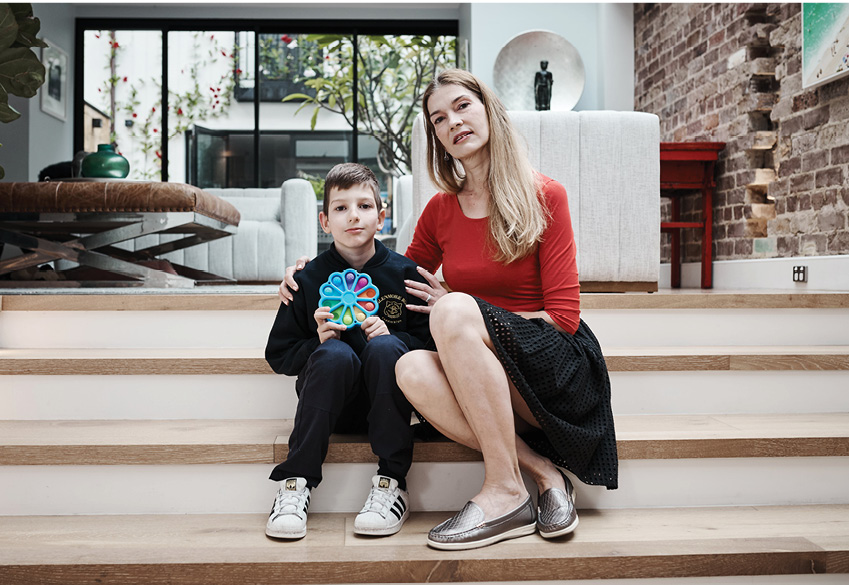
To anyone interested in hosting refugees, I’d say it’s the best thing you can do. We’re so complacent here in Australia. Most of us have never felt anything like this threat in our lives. It’s easy to watch the war on television and say, ‘Oh, isn’t that terrible?’ and maybe make a donation, but it’s still very removed.
This feels different. It’s enriched life, for us and our children. They speak about the war at Dash’s school, and it’s given him and his friends a deeper understanding from a personal and human level of the trauma being felt by Ukrainians.
It’s put in sharp focus how lucky we are, and that we should never take our freedoms in Australia for granted.
If you’d like to help, contact the Ukrainian Council of NSW or the Association of Ukrainians in Victoria, or the Ukrainian community organisation in your state or territory
Photography: Joshua Morris


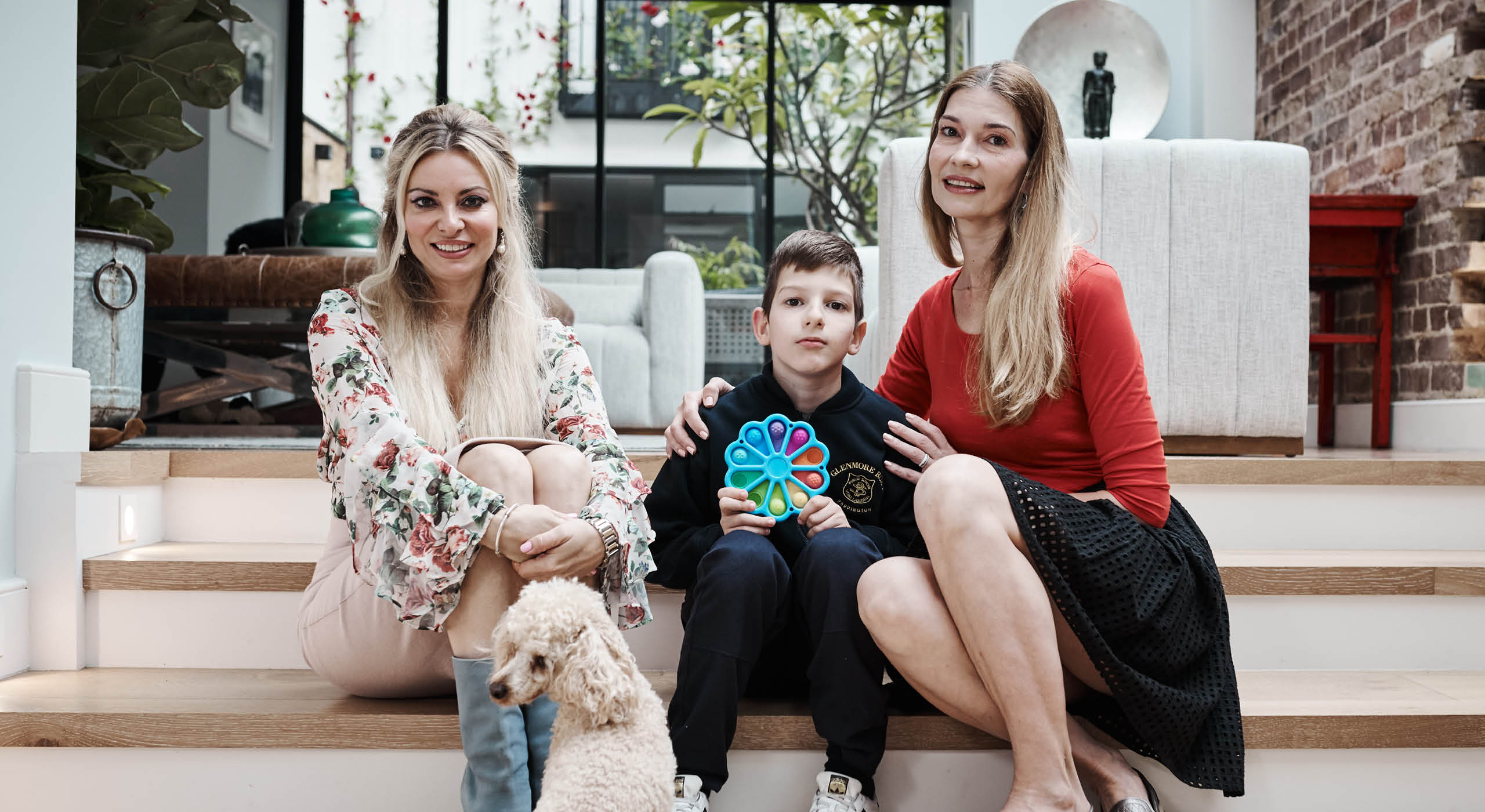


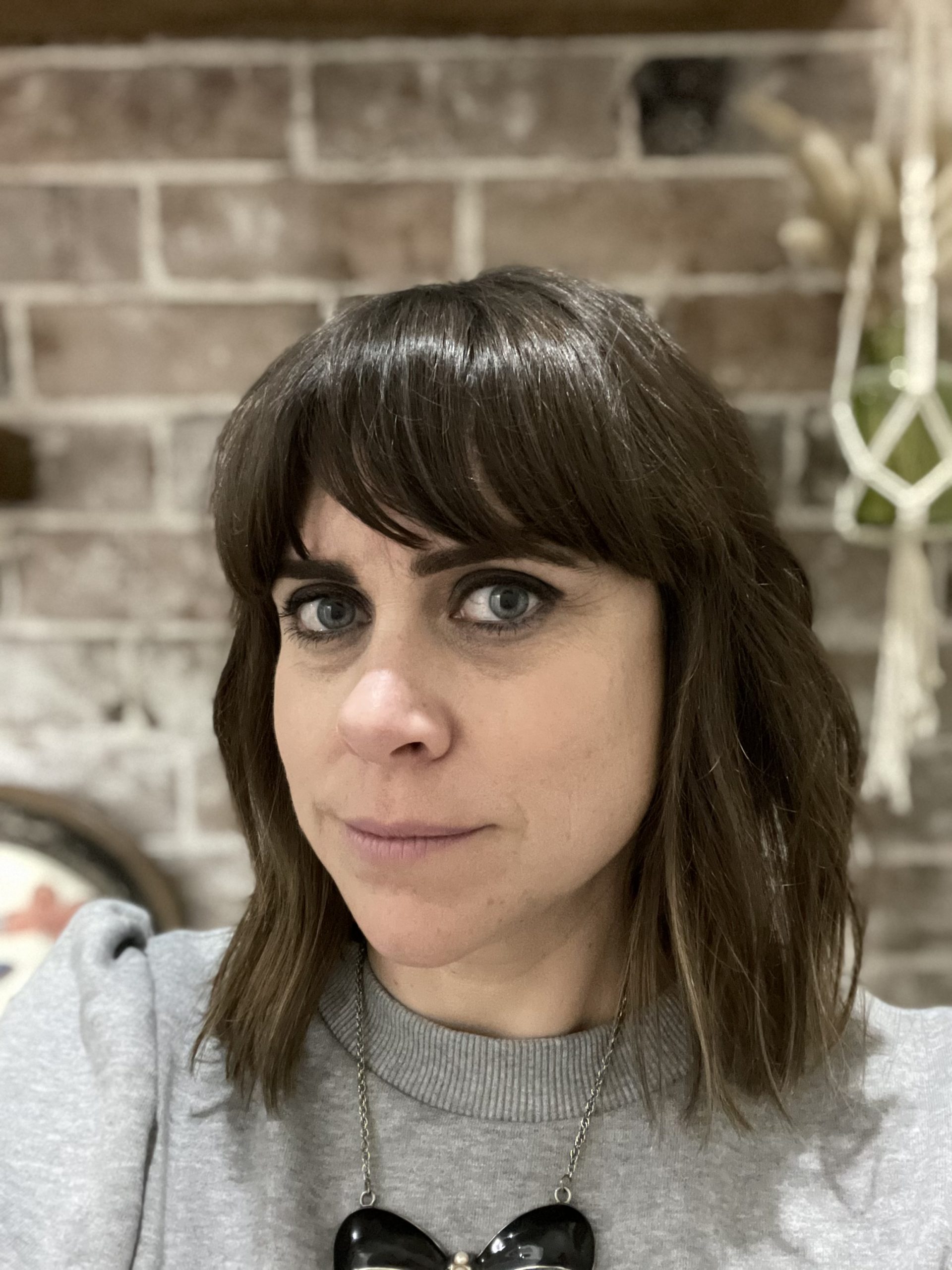


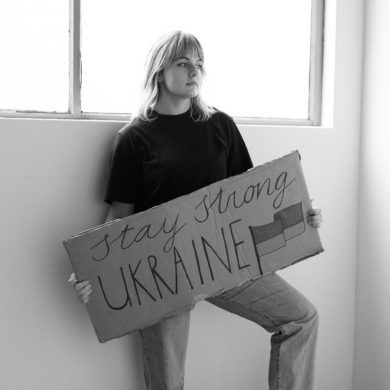
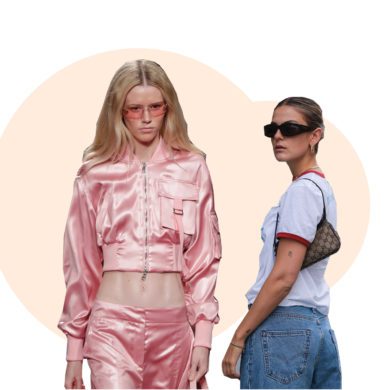
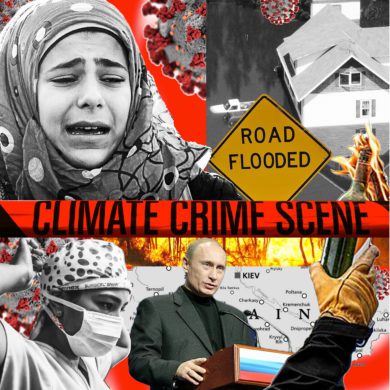
1 Comment